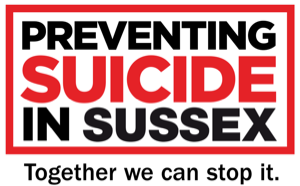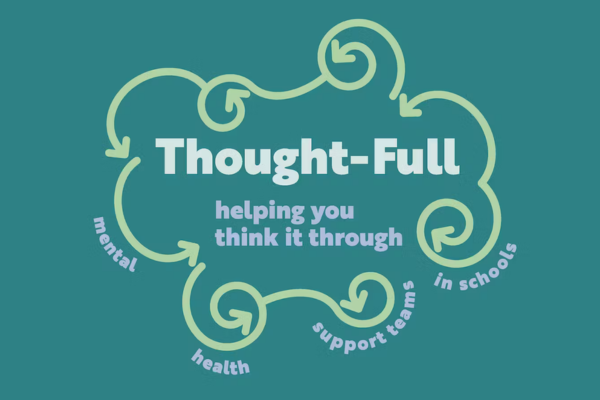Mental Health
Mental Health and Wellbeing at St Wilfrid’s Catholic School
Ethos:
At St Wilfrid’s Catholic School we aim to provide positive mental wellbeing for our whole school community; children, staff, parents and carers. We strive for our school to be a comfortable, happy and healthy environment where children can learn skills to help them express their emotional state in a positive, effective way.
We recognise that good mental wellbeing is as important as physical wellbeing and that a child‘s overall wellbeing can affect their learning and achievement in school.
The Department for Education (DfE) recognises that ‘in order to help their children succeed; schools have a role to play in supporting them to be resilient and mentally healthy’.
We use our PSHE curriculum to support our children to develop an awareness of mental health and physical wellbeing.
What is mental wellbeing?
Mental health is an integral and essential component of health. The World Health Organisation (WHO) constitution states: “Health is a state of complete physical, mental and social well-being and not merely the absence of disease or infirmity.” An important implication of this definition is that mental health is more than just the absence of mental disorders or disabilities.
Mental health is a state of well-being in which an individual realises his or her own abilities, can cope with the normal stresses of life, can work productively and is able to make a contribution to their community.
Mental health is fundamental to our collective and individual ability as humans to think, emote, interact with each other, earn a living and enjoy life. On this basis, the promotion, protection and restoration of mental health can be regarded as a vital concern of individuals, communities and societies throughout the world.
World Health Organisation
At St Wilfrid’s Catholic School we aim to:
- Provide a safe and welcoming environment so that children, parent/carers and staff can develop a sense of belonging.
- Promote good mental health as something to be valued and nurtured
- See all forms of behaviour as a form of communication.
- Build resilience.
- Support children in realising their own potential.
- Provide an environment that supports the minimisation of the effects of stress and heightened anxiety.
- Give young people the tools to feel confident in themselves; express their emotions; make and maintain positive relationships and cope with times of stress.
Pastoral Team
| Role | Name | |
|---|---|---|
| Senior Mental Health Lead | Mrs C Lay | |
| Chaplain | Mrs Franke | |
| Year Leaders |
Year 7 Year 8 Year 9 Year 10 Year 11 VI Form |
Mrs Law Mrs Anderson Mr Redmayne Mr Sapwell Miss Donnelly
Mr Ashleigh-Morris |
| Designated Safeguarding Leads |
Mrs Rumbol Mrs C Lay Mr Franke Mr Ferry |
|
| Pastoral Support & Inclusion Leader | Mrs Keynes | |
| Leader of Opportunities | Mr Calver | |
What are we doing to support our students?
- Robust PSHE scheme of work in place to develop and address current challenges for children and support their emotional wellbeing.
- Mental Health information and available services are regularly shared with students, staff and parents.
- Peer intervention groups including: Flourish (Year 7s), BOOST, Social Communication
- Rainbows peer intervention for students that have experienced significant loss/ bereavement.
- Access to Thought-Full Mental Health Support Team interventions and workshops
- Time Out cards can be issued to students who need to take breaks from the classroom.
- Our chaplain, Mrs Franke, runs 1:1 listening service.
- Mrs Keynes runs 1:1 and group Anger Management sessions
- Mrs Keynes and Mr Radenhurst run Wellbeing Garden groups.
- Team of Designated Safeguarding Leads.
- Mental Health in Schools Team (MHST)- Thought-Full school
We are committed to working in partnership with parents/carers where there are concerns about mental health. This is what we offer:
- Contact with pastoral team for signposting.
- Information sent out as and when to parents about new groups, services and local offers.
- Wellbeing information on termly newsletter.
- Governor with responsibility for Mental Health and Wellbeing: Mrs Dee Nash.
We recognise the importance of staff mental health and wellbeing. This is how we support our staff:
- Monthly wellbeing information on newsletter.
- Mental Health Leads in school.
- Staff wellbeing questionnaire.
- Professional development opportunities.
- Supervision for staff, as appropriate.
- Training and support from Thought-Full
Free online counselling for young people aged 11-18. Young people can self-refer if they are over 13 years old.
Allows young people to text a school nurse for health advice via text 07480635424
Lots of support and advice around mental health for both young people and professionals.
Young Minds Parents Helpline
Contact information for parents to receive support for their children.
Lots of advice and support for young people and parents, particularly under the ‘Coronavirus Advice’ section.
Various mental health support for young people.
Mental health support and advice on self-care for young people and school staff.
Online support for young people struggling with self-harm (aged 14-19). Includes a free online 7 week course.
Online support for parents who are concerned about their child having suicidal feelings.
|
|
Thought-Full- Mental Health Support Teams in Schools (MHST)
Winston’s Wish - supporting children after the death of a parent or sibling
Samaritans- free 24/7 helpline. You can get in touch about anything that’s troubling you, no matter how large or small the issue feels.
Childline- free 24/7 phone line and online support. Lots of information for young people around all aspects of their lives













